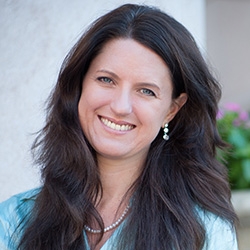
Search Results: contraction
-
Have you experienced inauthenticity, confusion and flatness in expressing empathy with others? Do you long to create a more natural quality of energy as you practice empathy? Or are you a trainer looking for guidance to teach workshop participants a more natural flow in their empathy practice?
-
An addiction to something (eg. opioids, fats, sugars, salts, cigarettes, coffee, alcohol, etc.) or a compulsion (eg. gambling, shopping, working, sex or love addictions) is often an unconscious attempt to soothe trauma - fear, loneliness and shame that's frozen in unconscious memory. The addiction or compulsion is a substitute for what we really need. It is an endless craving that's never enough. Read on for more.
-
-

In this 6-session course Sarah Peyton will take you through the 5 levels of unconscious contracts that can create patterns of self-sabotage and self-defeat. Each session introduces a different unconscious contract based on various aspects of relational neuroscience and provides support for the release of these contracts.
Sarah Peyton shows you how, with deep empathy, self-accompaniment, and an understanding of neuroscience, you can free yourself from your original constraints.
It can be bewildering to be human.
We can make so many choices that are not good for us. Why do we persist in habits, incapacities or self-judgments that are harmful to our long-term well-being?
The answer to this question is surprising – it is usually either love – or - paradoxically, survival!
Love is at the root of self-sabotage.
Though we often aren't aware of it, our nervous systems are essentially still paired with our earliest caregivers and often related to how we responded as a child. Our first interactions shape us in ways that can limit our life energy.
-
Here's a daily self-acceptance practice you can bring into your life whenever you are experiencing pain, tension, contraction, lack of fulfillment, or unmet needs or values. Giving your often undesired experiences space can be a path to greater inner connection and peace.
-
-
In moments where we would like to see change, personal growth or spiritual transformation, rather than immediately acting to make a change, Robert suggests we practice unconditional self-acceptance through a spacious presence to our inner experience. Robert asks us to give our attention and spacious awareness to our own judgments, inner contractions, and other experiences we often regard as undesirable.
-
Every one of us is impacted many times each day by micro-freezes that are the resulting fallout from both recent and long ago painful events. During this powerfully healing course, Sarah will walk you through a unforgettable tour of neuroscience, and succinctly demonstrate how NVC and neuroscience together can change your brain and enable your life to become both more fluid and far more resilient.
-
Would you like to learn how to:
- Use line and color to deeply connect with the feelings and needs that are alive for you ?
- Find a way forward that comes from your creative self ?
- Meet your creative self, even if you have never had the pleasure of meeting it before ?
Come join Olga Nguyen for Neuroart / Visual NVC– even if you have never drawn or painted before, and even if you are a professional in the midst of a creative block!
-
The awareness and practice of interdependence is integral to holding an NVC consciousness. Practicing interdependence also means bringing in a quality of care in the moments we want to change agreements with others. This article talks about where our various choices, in regards to changing agreements, fits into different levels of engaging our interdependence.
-
- Reclaim the lost voices of your ancestors
- Understand the impact of collective trauma on your family line
- Open yourself up to have more warmth for yourself and your children
- Restore the flow of love and energy from past generations
-
Trainer Tip: Even when it's tempting to coerce or match might with might, we can strive to meet our needs without negatively affecting others. Instead of convincing anyone to do it our way or to value the same things we value, we can focus on what we value: compassion among people and valuing everyone’s needs. By doing this we are actually more likely to meet our own needs and we are better able to live peacefully.
-
- Transform and heal developmental trauma
- Reclaim the parts of yourself that have been left behind
- Discover the difference between developmental trauma and PTSD
- Reawaken your heart to love
-
What is a good baby? If you have been raised in a Western culture, chances are you know the answer right away (whether or not you agree with it). A good baby is one that doesn't cry! The training against vulnerability starts very early in life.
-
So many of us have a habitual response of trying to eliminate uncertainty and the arrival of what we don't want. Alternatively, we can embrace the irreducible uncertainty of life. This shift from resistance and helplessness to mourning allows acceptance of outcomes, reduction of stress, and opens the door to noticing and appreciating what's present and available amidst challenges.
-
For this practice assume that reactivity is arising any time you are distracted and not enjoying something. Practice throughout the day by focusing your attention for a few moments on something specific that you find pleasing. Notice the sensation of joy or pleasure in your body, and hold attention there longer than usual. This interrupts tension and contraction. Keep remembering to do this. When you go too long without directing your attention in this way, the practice becomes less accessible.
-
Enmeshment refers to confusion about who is responsible for what. This lack of clear boundaries results in attempts to manage the other person's experience as a substitute for managing your own. When you think you're contributing to another person, but you're actually acting from enmeshment, there's inner tension and contraction. Read on for 16 common signs of enmeshment so that you can know when to pause and connect to your needs.
-
Many of us have been raised within a right/ wrong culture. From very young ages, we are asked, "What is wrong?" Yvette Erasmus shares a different view where emotions can be seen as expansion and contraction, where they can help us identify our needs.
-
Through your dialogues at home, where the stakes are often very high, you can increase your ability to meet the challenges of life everywhere with empathy, goodwill and authenticity. Please listen to this inspiring recorded telecourse with Miki Kashtan and learn how!
-
Join Susan Skye as she guides you to experience profound transformation of the inner jackal messages resulting from childhood trauma. Discover how the limbic system of the brain works, and transform jackal messages stored there with compassionate connection.















